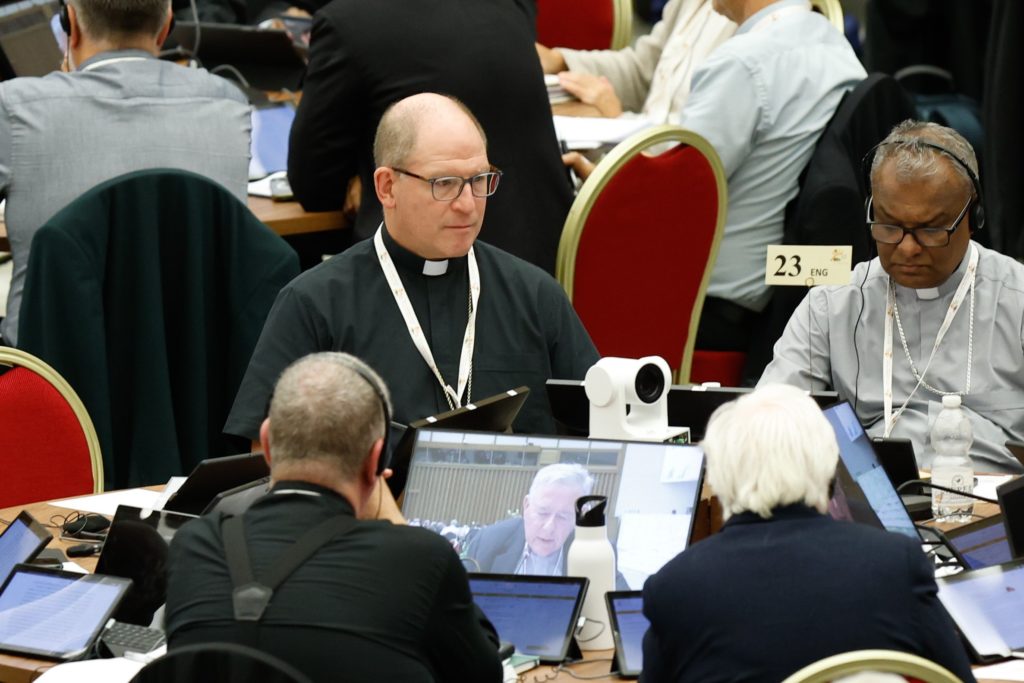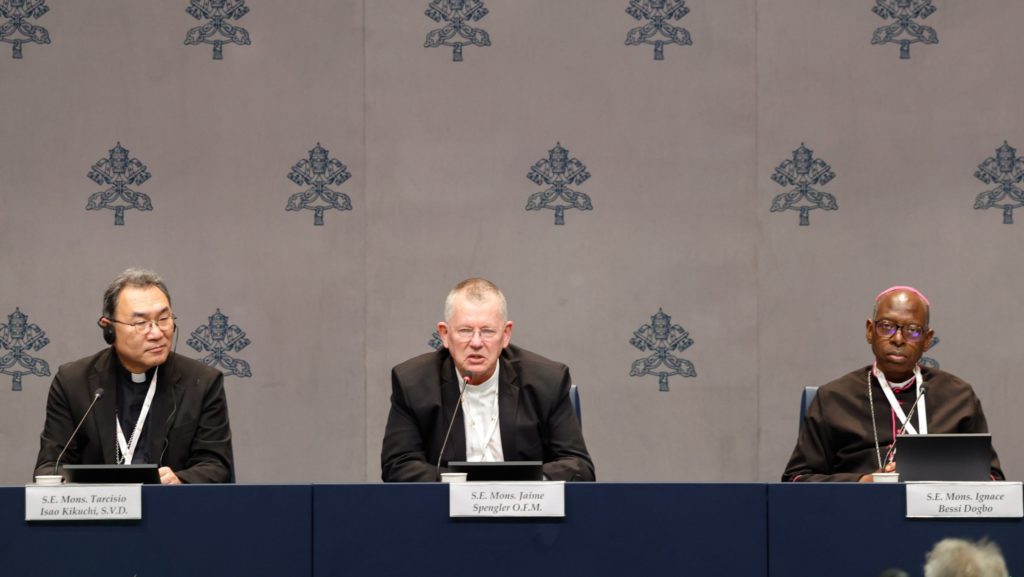ROME — Long-term trends often can seem remote and abstract, until a single dramatic moment comes along which makes them real. Modern Islamic radicalism, for example, had been building since the Iranian revolution in 1978-79, but it was 9/11 that brought it home; America’s demographics had been shifting for decades, but it took the election of Barack Obama in 2008 to make the consequences feel tangible.
In that tradition, the Synod of Bishops on Synodality in 2024 may be remembered as the moment in which deep demographic transformations of Catholicism over the last half-century burst into full public view.
Heading into the final act of the pope’s three-year synodal process, a second and last assembly of bishops and other participants in Rome to draw conclusions, there were expectations that the gathering might address a few hot-button issues, including the ordination of women as deacons, the blessing of same-sex unions, and the expansion of a married priesthood.
In fact, however, there’s been relatively little focus on those matters, in part because Pope Francis and his Vatican team largely took them off the table.
Francis used an interview with CBS last May to say “no” to women deacons, and his doctrinal czar, Argentine Cardinal Victor Manuel Fernández, repeated the point during an address at the opening of the synod. In a similar fashion, the document Fiducia Supplicans (Supplicating Trust), prepared by Fernández and approved by Francis last December, largely laid the blessings issue to rest.
However, papal fiat is not the only reason these issues haven’t had a lot of traction in Rome this month. There’s also been a tendency, explicit in some cases and more sotto voce (soft tones) in others, to style these questions as preoccupations of the Church in the affluent West, and thus not really keen priorities for Catholicism in the rest of the world.
That point was made most directly by Bishop Anthony Randazzo of Broken Bay, Australia, during a news conference on Oct. 4.
“So often we get caught up with niche issues that we talk about in Europe or in North America,” Randazzo said, adding that the push on questions such as women and outreach to those who identify as part of the “LGBT” community often comes from “churches and communities that have great wealth, great access to technology, and resources.

“Those issues become all-consuming and focusing for people, to the point that they then become an imposition on people who sometimes struggle simply to feed their families, to survive the rising sea levels, or the dangerous journeys across wild oceans to resettle in new lands,” he said, calling the Western obsession with such matters “a new form of colonialism” which, he said, is “certainly not the mind of the synodal Church in mission.”
While Randazzo has been the most vocal, other synod participants also have stressed that Catholicism is undergoing epochal transformations, a reality clearly reflected this month in Rome.
When Francis named 21 new cardinals on Oct. 6, he once again showed a clear preferential option for the peripheries. Shortly thereafter, the Vatican arranged a news briefing with three of the new princes of the Church, featuring one each from Asia, Africa, and Latin America – meaning nobody, therefore, from the West.
“The center of the Church is shifting from Europe to other areas, the global south. The center of the Church is shifting from Europe to the global south, that is the indication of this appointment,” said Cardinal-elect Tarcisio Isao Kikuchi of Tokyo.
“The peripheries are moving,” Kikuchi said, “maybe to Europe.”
Likewise, Cardinal-elect Ignace Bessi Dogbo of Korhogo, Ivory Coast, said, “The fact of appointing cardinals from different countries and different continents is really a sign that the pope is opening the Church up, and the Church today needs to listen.”
Certainly the underlying demographic realities are indisputable. There are 1.3 billion Roman Catholics in the world today, and more than two-thirds live in Latin America, Africa, Asia, the Middle East, Eastern Europe, and Oceania, meaning outside the traditional boundaries of Western culture. By mid-century, that share is destined to become three-quarters.
Such transitions may seem like hollow statistics, until something happens to make them real.
We got a hint of things to come during the twin Synods on the Family in 2014 and 2015, when the leading proponents of opening up communion to divorced and civilly remarried Catholics came from western Europe, especially Germany, while many of the most vocal opponents were African.
Those fault lines came into even clearer focus with Fiducia Supplicans, when the opening the blessings for persons in same-sex relationships was welcomed across much of western Europe but firmly rejected in Africa.
In that light, the 2024 synod represents a crescendo to a movement that’s been building for a while, in which an increasingly assertive global Church tells the west that the era in which it set the tone, and its issues dominated the Catholic agenda, is over.
That may be a welcome development to some and consternating to others.
At the moment, it may make Catholic liberals feel most put out, who are seeing their concerns with women and the “LGBT” community muscled aside. In another context, however, it could easily be Western conservatives who are disgruntled, perhaps over matters such as climate change, war and peace, and ethics of free-market global capitalism.
In any event, the lack of bombshells from this synod on issues which have dominated Western Catholic debate for decades perhaps offers a wake-up call: This is unlikely to be the last time when Westerners are told in some Catholic venue, more or less politely, that it’s time for them to get in the back of the line for a while.

